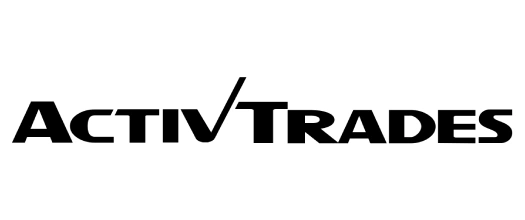Scalping is a high-frequency trading strategy that involves opening and closing numerous positions within a short time frame. It sees widespread use within the broader online trading sphere and, unsurprisingly, has also gained traction among UK traders seeking to capitalise on short-term market movements.
Forex traders often favour regulated brokers that provide tight spreads, advanced trading platforms and fast execution, and the UK Forex market offers exactly that. With the right brokerage, Forex enthusiasts based in the UK can unlock the potential of scalping and achieve better trading results. If you are eager to try out this strategy but are not sure which broker will be best suited to your goals, you are welcome to continue reading.
 Eightcap
Eightcap IG
IG Pepperstone
Pepperstone CMC Markets
CMC Markets ActivTrades
ActivTrades eToro
eToro
Below, you can find more information about the best trading platforms for scalping in the UK:
- Eightcap
facilitates seamless scalping through fast order execution, access to raw pricing and minimal slippage. High-frequency traders will benefit from low spreads and access to useful tools like VPS hosting. - IG
delivers impressive execution speeds, direct market access to raw prices and support for platforms like L2 Dealer that enable manual one-click trading. - Pepperstone provides swift ECN order execution with average speeds of around 30 milliseconds, no dealing-desk intervention and raw pricing, rendering it suitable for scalpers.
- CMC Markets
is a highly efficient and affordable option due to its low latency, raw spreads and advanced order types on robust platforms like MetaTrader 4 and the proprietary Next Generation. - ActivTrades fills client orders reasonably quickly to accommodate medium-frequency traders, offering highly competitive spreads and one-click trading to scalpers.
- While eToro delivers swift order execution, its slightly wider spreads and inactivity fees make it less appealing for scalpers and high-frequency traders in general.
What Is Scalping?
Scalping is a trading technique that involves making multiple trades within a short period, aiming to profit from small price movements in the market. This approach is commonly used in the foreign exchange market, allowing UK traders to take advantage of its volatility.
By using technical analysis tools, Forex traders identify potential trading opportunities and manually enter the market with small positions, hoping to profit from the expected price movements. Scalping can also be automated via the use of computer algorithms to execute trades based on predetermined criteria, a practice known as algorithmic trading.
Successful scalpers possess a deep understanding of the markets and the trading strategy itself, as well as the ability to analyse complex market data and make quick decisions. They must keep their emotions in check and adapt to changing market conditions. This makes scalping a challenging trading strategy that requires skill, knowledge and discipline, and it can be highly profitable for those who master it.
Scalping Strategy Types
For traders looking to take advantage of scalping, various strategies have been developed to suit different market conditions and trading styles. As traders navigate the complex and ever-changing Forex market, they must be equipped with a variety of strategies to leverage emerging trends and price movements. Some of the key scalping strategies include:
- Breakout Scalping: With this strategy, traders capitalise on sudden price movements as a new trend emerges. It entails identifying key levels of support or resistance and then entering a trade as soon as the price breaks through these levels, with the expectation of profiting from the resulting momentum.
- The 1-Minute Forex Scalping Strategy: This is a trading technique that involves holding positions for an extremely short period, typically just one minute. It is a high-frequency approach that seeks to profit from tiny price movements, often using technical analysis to identify potentially profitable entry and exit points.
- Scalping Dips: To utilise this strategy, one must buy during periods of market dips, aiming to capitalise on the rebound as the price recovers.
- Momentum Scalping: Momentum scalping focuses on strong price movements. Traders who utilise this strategy identify rapid trends and volatility surges, then quickly enter and exit trades.
- Range Scalping: This approach entails buying and selling within an established range, capitalising on predictable price movements and allowing traders to profit from market fluctuations.
- Moving Average Scalping: This strategy uses multiple moving-average technical indicators to identify trends and potential trading opportunities.
Is Scalping Legal in the UK?
Implementing the scalping strategy is generally legal in the United Kingdom and falls under the regulatory purview of the Financial Conduct Authority (FCA). The UK’s financial supervisor ensures the integrity and transparency of the local financial markets and safeguards consumer interests while maintaining market stability. To achieve this, the FCA imposes several measures that indirectly affect scalping.
One such regulation is the imposition of leverage restrictions for retail traders to mitigate excessive risk-taking and prevent potential market manipulation. Major currency pairs are limited to a maximum leverage of 1:30. Minor pairs, gold and major indices, meanwhile, are capped at 1:20. These leverage constraints, implemented in August 2018, help protect retail traders from substantial losses that can arise from using excessive leverage while scalping.
Contrary to some misconceptions, the FCA does not impose a specific limit on the number of trades that can be executed within a single trading day. However, the regulator actively monitors trading activities and may take action against firms or individuals suspected of engaging in excessive trading or market manipulation. Firms are mandated to implement robust systems and controls to detect and report suspicious trading patterns, including those associated with aggressive scalping.
It is also crucial to understand why certain brokers, particularly market makers, often restrict or outright ban scalping. Market makers act as counterparties to their clients, often taking the opposite side of their trades. Scalping, with its high-frequency nature, can expose market makers to increased risk, especially during periods of high volatility. The rapid execution of numerous small trades can strain a broker’s infrastructure, leading to increased operational costs and potential slippage.
To mitigate these risks and maintain profitability, market makers may implement restrictions or impose bans on scalping, favouring trading strategies that align better with their business model. Conversely, brokers that rely on the Electronic Communication Network (ECN) or Straight Through Processing (STP) models, which connect traders directly to liquidity providers, are generally more accepting of scalping. This is because they profit from transaction volume rather than taking the opposite side of the trade.
What Platforms Are Suitable for UK Scalpers?
UK traders rely on various trading platforms and tools to engage in scalping. This section covers the most popular platforms available to scalpers from the country. Before we proceed further, we should note that while these platforms are widely used, the FCA mostly focuses on the brokers and financial firms that utilise them to offer trading services, rather than the software providers themselves. Therefore, platforms like MetaTrader do not require direct licensing or authorisation from the FCA.
- MT4: A widely used platform for scalping, offering advanced charting and trading tools, as well as automated trading capabilities that allow traders to create and execute complex trading strategies with ease. MT4 also provides a wide range of technical indicators and expert advisors, making it a popular choice for scalpers who want to automate their trading decisions.
- MT5: This is an upgraded version of MT4, offering additional features and tools, such as improved charting and trading functionality, as well as enhanced automated trading capabilities. MT5 also provides a more advanced programming language, allowing traders to create more complex and sophisticated trading strategies.
- TradingView: This platform offers advanced charting and analysis tools, as well as a community of traders who share their insights and strategies. TradingView provides a wide range of technical indicators and charting tools, making it a popular choice for scalpers who want to analyse and visualise market data.
- cTrader: If you are looking for a professional trading platform that offers advanced features and tools, such as automated trading and advanced charting, cTrader is an excellent option. The platform is a popular choice for scalpers who want to execute complex trading strategies with precision and speed. It also provides a more advanced risk-management system, allowing traders to manage their risk and maximise their profits.
The aforementioned platforms provide traders with the necessary tools and features to utilise scalping, including real-time market data, advanced charting and automated trading capabilities. As scalping continues to evolve, UK traders leverage technological advancements and regulatory safeguards to navigate this fast-paced trading method effectively.
What Makes a Scalping Broker Suitable for UK Traders?
A good scalping broker that caters to UK traders should possess several key characteristics. Firstly, an FCA licence is paramount as it ensures the brokerage is properly regulated and supervised, providing robust consumer protection. While some offshore brokers do accept UK clients, an FCA licence holds the most weight for UK traders seeking regulatory security.
Another essential factor is ultra-fast execution. Scalping relies on capitalising on minute price fluctuations, making swift trade execution absolutely critical for UK traders to employ their strategies effectively.
Market variety is also a vital consideration for UK scalpers, enabling them to seize opportunities across diverse markets. UK-friendly brokers should offer a broad range of instruments, including major and minor currency pairs, indices, stocks and commodities, to accommodate the varied preferences of UK traders. Crucially, these instruments should be offered with competitive spreads, whether through a zero-commission or commission-based model.
UK traders should prioritise brokers that offer their preferred platform. To facilitate seamless trading, convenient deposit methods are also essential. Options such as bank transfers, debit and credit cards, and popular e-wallets like PayPal should be readily available to UK traders looking to fund their accounts.
Ultimately, the ideal scalping broker for UK traders must provide stringent regulatory oversight from the FCA, competitive pricing, convenient deposit options and a reliable, user-friendly trading platform.
Pros and Cons of Scalping in the UK
While scalping as an approach to trading has gained popularity among UK traders, there are certain advantages and disadvantages one must weigh before adopting it:
Pros
- Opportunity to capitalise on small market fluctuations, which are frequent in the Forex market.
- Allows for quick entry and exit from trades, minimising exposure to market volatility.
- Scalping enables traders to stake small amounts per trade, which can minimise losses.
- Scalping strategies lend themselves well to automation.
Cons
- Scalping requires intense focus and constant market monitoring, which can lead to high levels of stress and pressure.
- The sheer number of trades required to make a profit results in scalping being relatively time-consuming.
- Scalping is best suited to trading veterans, as it can be difficult for those who have just recently started their trading journey.
- Some brokers prohibit their clients from using scalping strategies.
FAQ
Do UK brokers allow scalping?
UK brokers generally allow scalping, but there are exceptions. Moreover, some brokers may impose restrictions, such as minimum holding times or additional fees, even if they technically permit scalping.
How can I make sure that a broker that supports scalping has an FCA licence?
To confirm that a broker holds an FCA licence, start by checking the broker’s official website for regulatory information, which should include their licence number. Next, verify this number on the FCA licensee register, a publicly accessible database of regulated financial entities. Finally, make sure to check that the broker’s licence is still valid.
Can UK traders use leverage when scalping?
British traders can use leverage when scalping, but with some restrictions. The maximum leverage is capped at 1:30 for major currency pairs and gold, while the ratios are lower for more volatile markets like stocks (1:5) and soft commodities (1:10). Although leverage can amplify profits in scalping, it also increases the risk of rapidly mounting losses, so traders must exercise due caution.
Is scalping suitable for beginners?
Scalping can be a lucrative strategy for experienced traders who can manage risk effectively and make quick decisions. However, it may not be suitable for beginners or those who are not comfortable with high-pressure trading environments, while at the same time lacking knowledge and practical experience in Forex trading.
How can I exercise risk management when using scalping strategies?
Effective risk management in scalping involves setting precise stop-loss orders, sizing your positions smartly and avoiding excessive leverage to reduce potential losses. Additionally, maintaining discipline and sticking to a well-defined trading plan is crucial for your success with this fast-paced strategy.